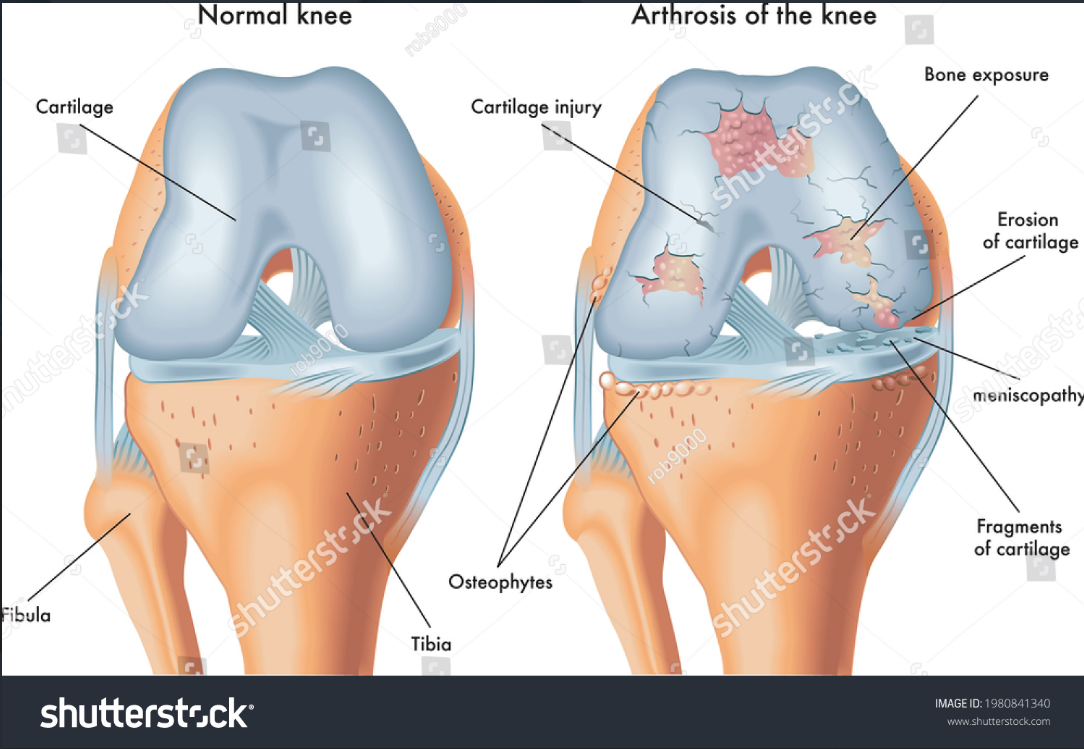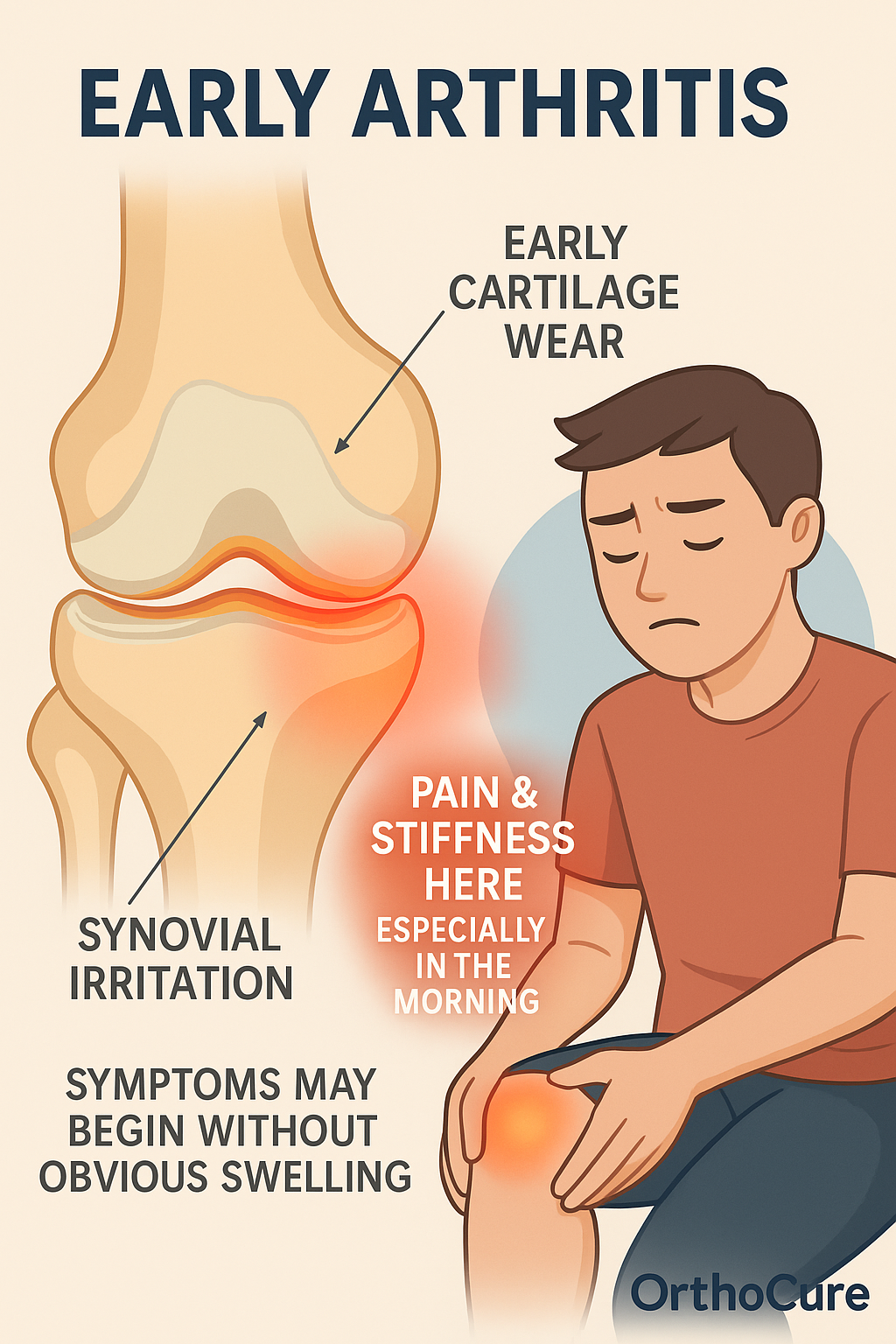
“Doctor, my joints hurt… but only in the mornings. Is that normal?”
This is a common concern I hear. Arthritis often whispers before it screams. Let’s decode what those early signs mean.
What is Early Arthritis?
Arthritis isn’t one disease—it’s an umbrella term for over 100 joint conditions. The most common are osteoarthritis (OA) and rheumatoid arthritis (RA). Early arthritis refers to the subtle phase where inflammation and joint damage begin silently.

7 Early Signs You Shouldn’t Ignore
- Morning Stiffness: Lasting over 30 minutes after waking can suggest inflammation.
- Joint Swelling: Especially without injury — watch your knuckles and knees.
- Pain at Rest: Pain that worsens during inactivity or sleep may be inflammatory.
- Clicking or Grinding: Called crepitus—often seen in wear and tear in your joints.
- Unusual Fatigue: Especially in Rheumatoid arthritis, fatigue may precede pain.
- Loss of Range of Motion: Difficulty with movements like squatting or climbing stairs.
- Genetic Risk: A family history increases your odds significantly.

Why Acting Early Matters
Studies show that early treatment of inflammatory arthritis within 12 weeks of symptom onset significantly improves long-term outcomes.
References: Van der Linden MP et al., Arthritis Rheum. 2010; Emery P et al., Rheumatology. 2002
What You Can Do
- Track your symptoms and how they evolve
- Don’t delay consultation beyond 4–6 weeks of symptom onset
- Book a clinical evaluation with imaging and lab tests if needed
At OrthoCure Bone & Joint Speciality Clinic, I specialize in early arthritis detection and non-surgical interventions. Let’s catch it early—before it becomes a problem you can’t ignore.
🩺 Book a Consultation with Dr. Sumesh Now